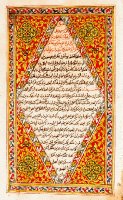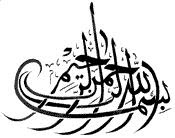 Just something I've found on the Internet which happens to be on a subject I'm very interested in... Malay olden history. This one talks about an old Malay text almost 400 years old which happens to be one of the main source of old Malay history. So have a go!
Just something I've found on the Internet which happens to be on a subject I'm very interested in... Malay olden history. This one talks about an old Malay text almost 400 years old which happens to be one of the main source of old Malay history. So have a go!Sejarah Melayu
The Malay Annals
The Sejarah Melayu (Malay Annals) is clearly the most famous, distinctive and best classical Malay prose to be ever produced, sharing in the great literary tradition other Malay works such as the Hikayat Hang Tuah, Hikayat Raja-Raja Pasai and the Hikayat Marong Mahawangsa (Kedah Annals).
It chronicles the establishment of the Malaccan sultanate, charting a course of more than 600 years in a solid compact book filled with intricate details regarding royal protocol, royal lineages, weaving in various historical, mythical and legendary figures and episodes in a compendium that still captivates its audiences three centuries later. Not historically connected, the collection of stories focuses on the activities of the Melaka sultans, their ancestors, their courts, government officials, allies and enemies. Certainly, foreign rulers were also described, as were Malacca's foreign relations and its importance as a regional trading centre. A noteworthy omission was the absence of any mention of peasant life.
Attributed to Tun Seri Lanang as its first editor, the work was commissioned by Sultan 'Ala'u-d-din Ri'ayat Shah of Johor. It was claimed to have been begun in on Sunday May 13, 1612, in Pasai, Sumatra, where the Sultan was being held captive Mahkota Alam of Acheh. However, some scholars think that the original text was written prior to 1536 and underwent changes in 1612.
Scholars agree that its well-written narrative and characterisation of personalities makes it a world-class literary classic. Like any literary work of the medieval age, it has its downright boring moments - the endless geneaologies of rulers, every girl must be of peerless beauty, no army or fleet numbers less than "the thousands past counting".... But, on the other hand, the sheer narrative power is electric in many passages. It is most brilliant when the author admires the cunning (cherdek) of the peoples of the peninsula - time after time, the "men of Melaka" are just too clever for the foreigner and there is sheer artistry, wit and humour when the author has his gentle digs at the foreigner (gunting makan di-hujung!). Tales abound of the Melaka men (and women) outwitting, outflanking and befuddling all and sundry - from the Emperor of China to the largest Siamese fleets.
It is also an important historical source about Malacca and the Malay world prior to Malacca's defeat by the Portuguese in 1511. Although the Sejarah Melayu mentions only one date, events described in it can be verified by other historical sources. Much of the material found on this website is derived from the Sejarah.
However, the main aim of this work was, undoubtedly, to laud the spleandour, greatness and superiority of the Melaka Sultanate - and it was written at a time when the Johor court, successors of the Melaka sultans, were being attacked by Portuguese and Achinese, their capital sacked many times and having to be moved from one part of the Straits to another. The court was frequently on the run from marauding invaders, their territories being overrun. The Sejarah Melayu was probably an attempt by the Johor court to overcome its sense of lost fortunes by regaining the past glories of a mythical golden age that was less than a generation past. It still serves to inspire the Malay of today - and to remind them of the heights that they can be, and have been, capable of reaching.









